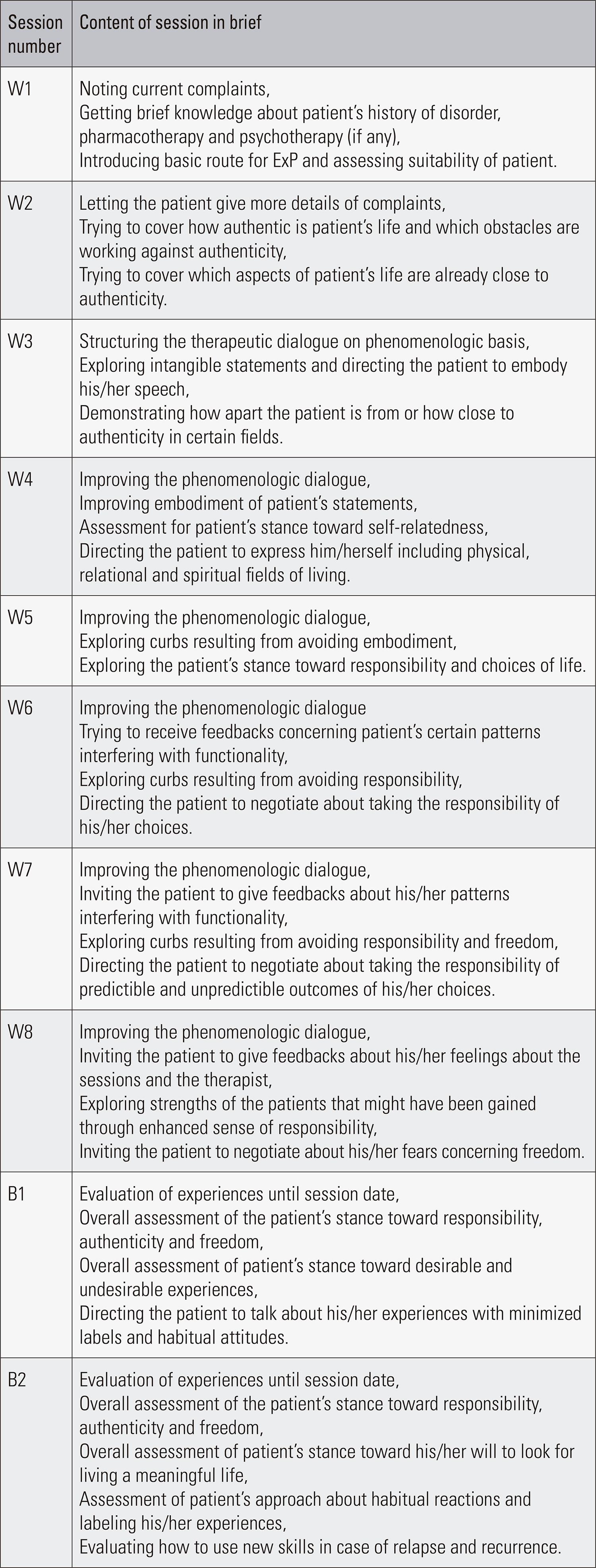Abstract
Background
Alexithymia is reported to be a risk factor for depression. Psychotherapy is efficient for treatment of depression. Yet, the effect of psychotherapies on alexithymia is poorly understood.
Objectives
We aimed to compare Cognitive Behavioral Therapy (CBT), Existential Psychotherapy (ExP) and Supportive Counseling (SUP) for therapeutic efficacy and effect on alexithymia in depression.
Methods
There were 22 patients for each patient group. Sessions were performed as eight consecutive weekly and following two monthly boosters. Sixty six healthy controls were added. Prior to the sessions, patients received Sociodemographic Data Form, the Structured Clinical Interview for DSM-IV Axis I Disorders (SCID-1), Hamilton Depression Rating Scale (HDRS) and 20-item Toronto Alexithymia Scale (TAS-20). The control group received Sociodemographic Data Form, SCID-1 and TAS-20. Patients additionally received HDRS and TAS-20 after their weekly and booster sessions.
Results
Patients’ mean TAS-20 score was greater than of controls, however, it did not have a significant change throughout the study. Mean HDRS scores of ExP and CBT groups were lower than SUP group at the end.
Discussion
Alexithymia did not improve with psychotherapy. The exception was effect of ExP on externally oriented thinking. Psychotherapies all improved depression. CBT and ExP were more helpful than SUP.
Alexithymia; cognitive behavioral therapy; depression; existential psychotherapy; supportive counselling


